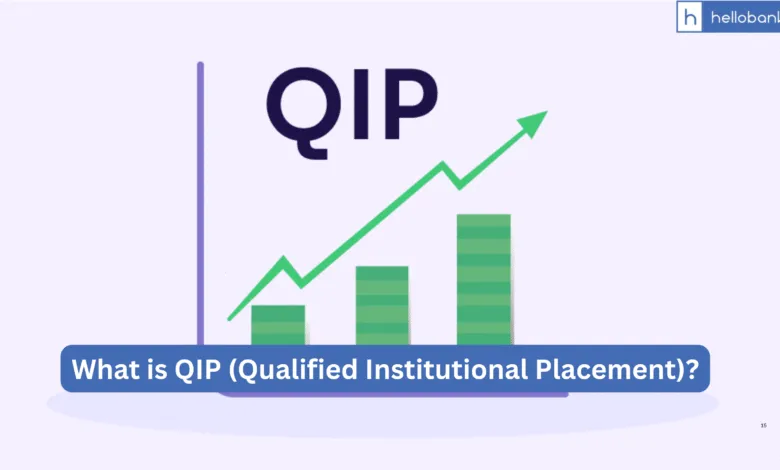What is QIP (Qualified Institutional Placement)?

QIP stands for Qualified Institutional Placement. It is a way for listed companies in India to raise money by issuing shares or convertible securities to qualified institutional buyers (QIBs) without going through complex regulatory processes like public offerings.
For Example: If a company (like a bank or any other business listed on the stock exchange) needs money for expansion, growth, or to strengthen its financial position, it can issue new shares. Instead of offering these shares to the general public, the company offers them only to big financial institutions like mutual funds, insurance companies, pension funds, etc. This process is called a QIP.
Why Companies Use QIP:
- Faster and simpler way to raise capital.
- Less paperwork and regulatory burden compared to a full public offering.
- Doesn’t dilute the value of shares as much as other methods.
- Helps improve capital adequacy ratio (especially useful for banks).
Who Can Invest in QIP?
Only Qualified Institutional Buyers (QIBs) can invest in QIPs. These include:
- Mutual funds
- Insurance companies
- Foreign institutional investors (FIIs)
- Pension funds
- Banks
- Venture capital funds
Example of QIP
If SBI wants to raise ₹25,000 crore, it can do a QIP and offer new shares to large investors like LIC, SBI Mutual Fund, or foreign funds without going through an IPO process.
QIP is Regulated By Whom?
QIP is governed by the Securities and Exchange Board of India (SEBI) under the SEBI (Issue of Capital and Disclosure Requirements) Regulations.
The Securities and Exchange Board of India (SEBI) started the Qualified Institutional Placement (QIP) process on May 8, 2006. The main goal was to reduce Indian companies’ heavy dependence on foreign funding.
Why QIP was started?
Before QIP was introduced, many Indian companies were raising money from international markets by issuing things like American Depository Receipts (ADRs). This was because raising money in India was complicated and time-consuming. So, companies found it easier to get funds from abroad.
However, this was a concern for Indian regulators because it meant that Indian companies were not using the Indian stock market to raise money. To stop this trend and encourage companies to raise funds within India, SEBI created the QIP rules. This made it simpler and faster for companies to raise capital from Indian institutional investors instead of going overseas.
What are QIBs (Qualified Institutional Buyers)?
Qualified Institutional Buyers (QIBs) are a special group of large investors registered with SEBI. These are domestic institutions that manage or invest big amounts of money. They are considered knowledgeable and capable of understanding and evaluating investment opportunities offered through the Qualified Institutional Placement (QIP) route. According to SEBI rules, the following types of entities can be registered as QIBs.
- Mutual funds
- Scheduled commercial banks
- Public financial institutions
- Life and general insurance companies
- Pension funds
- Provident funds
- SEBI-registered Foreign Portfolio Investors (FPIs)
- SEBI-registered Alternative Investment Funds (except Venture Capital and SME funds)
- Multilateral and Bilateral Development Financial Institutions (e.g., Asian Development Bank)
- SEBI-registered stock market brokers
